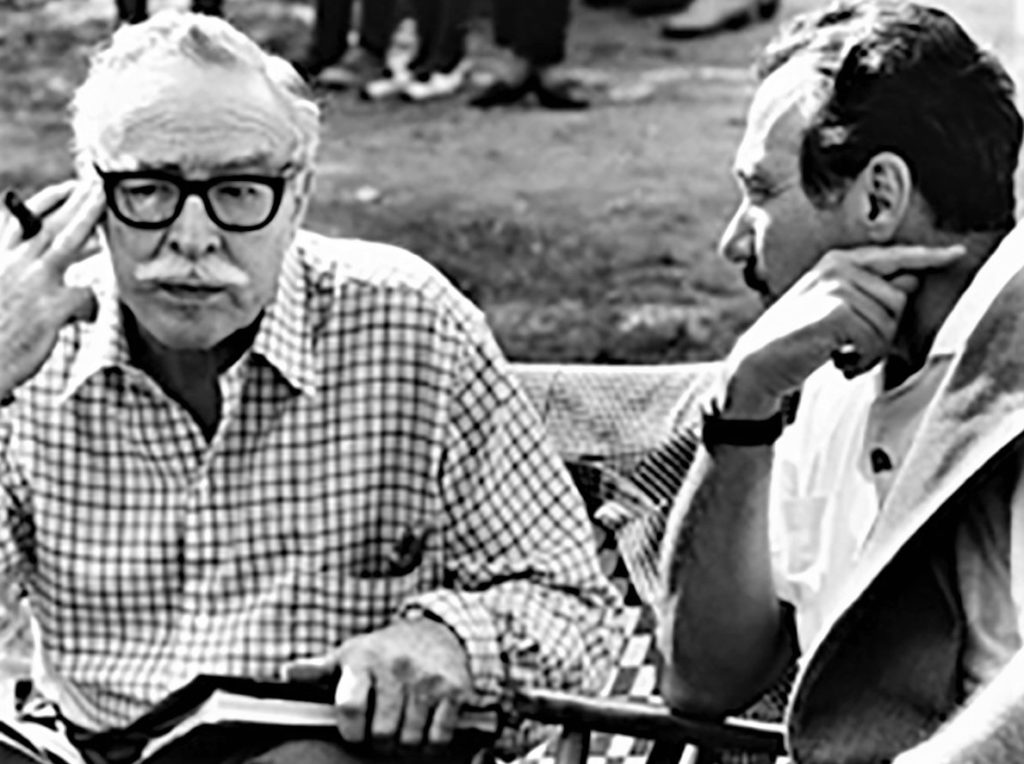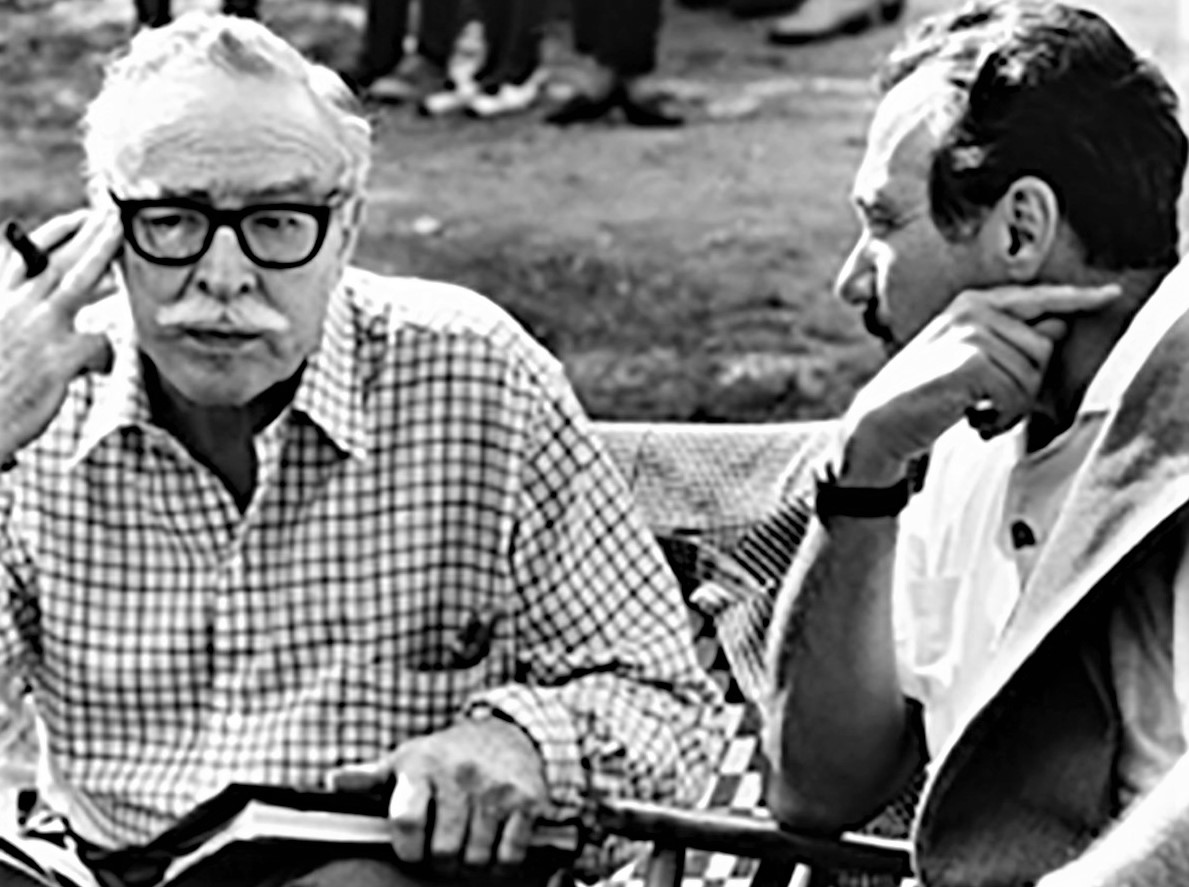Note to Readers: Apologies for my absence. I’ve been working on completing a long-term project. It’s taken longer than expected. I hope to have another commentary on Friday, and return Tuesday. I appreciate your understanding.
It was a time of fear; fear of communism; fear of American citizens who may be Communist spies; hate for those who sat before the House Un-American Activities Committee and refused to answer one question:
“Are you or have you ever been a member of the Communist Party?!”

Dalton Trumbo and Edward Lewis on the set discussing a script.
Screenwriter Dalton Trumbo’s response caught committee Chairman J. Parnell Thomas by surprise.
“I believe I have the right to be confronted with any evidence which supports this question,” Trumbo said.
“…well you would?” Parnell said.
“Yes.” Trumbo responded.
“Well, you will pretty soon,” Parnell said, pounding his gavel. “The witness is excused.”
While it may seem difficult to imagine a government body questioning a citizen about their loyalty, ten individuals were sent to prison for contempt of Congress.
After his release, Trumbo and others, were blacklisted from working in Hollywood. The Oscar-winning screenwriter took a variety of writing projects for incredibly low pay in order to take care of his family.
Producer Edward Lewis and actor Kirk Douglas hired Trumbo to rewrite the script for their production of Spartacus, from a novel by Howard Fast.
Last month, it was announced that Lewis, 99-years old died in July.
After filming was complete, Douglas and Lewis demanded that Trumbo be given public credit for his work on the film. Soon after, the blacklist crumbled.
“Mr. Lewis insisted that the movie, which was based on a novel by Howard Fast, another blacklisted writer, was never intended to be overtly political,” The New York Times reported (Aug. 15). “It nevertheless climaxes with what amounts to a 2,000-year-old prequel to the Red Scare, in which members of Congress demanded in hearings that witnesses identify colleagues or associates suspected of Communist ties. …
“The script was submitted piecemeal to the studio, Universal International, under Mr. Lewis’s name while Trumbo churned out page after page, writing in his bathtub with a wooden tray across the top. The tray “preserved his modesty and gave him a place to put his typewriter, an ashtray, and an ever-present glass of bourbon,” Mr. Douglas wrote in “I Am Spartacus!: Making a Film, Breaking the Blacklist” (2012).
“Every time Eddie Lewis told someone he was writing ‘Spartacus,’ it embarrassed him,” Mr. Douglas wrote, adding. “The revelation of Dalton Trumbo’s involvement with ‘Spartacus’ could shut down the entire picture. So Eddie continued to play the producer-turned-writer, a charade he hated.”
“Once Universal had invested heavily in the film (more than $70 million in today’s money), making it too late to halt production, Mr. Lewis demanded that the studio credit Trumbo and pay him.”
It’s not hard to imagine the division in the country that took place during the 50’s, much of which begun under Senate demagogue Joseph R. McCarthy. As soon as the junior senator from Wisconsin announced that he had a list of “members of the Communist Party and members of a spy ring,” public fear in communist infiltration in the U.S. government rose to unprecedented levels.
Dalton Trumbo was one of many who paid a steep price.
In a 1970 speech to the Writers Guild in accepting an award, Trumbo reflected:
“The blacklist was a time of evil, and that no one on either side who survived it came through untouched by evil. Caught in a situation that had passed beyond the control of mere individuals, each person reacted as his nature, his needs, his convictions, and his particular circumstances compelled him to. There was bad faith and good, honesty and dishonesty, courage and cowardice, selflessness and opportunism, wisdom and stupidity, good and bad on both sides.
“When you who are in your forties or younger look back with curiosity on that dark time, as I think occasionally you should, it will do no good to search for villains or heroes or saints or devils because there were none; there were only victims.”
After completing his anti-war novel, “Johnny Got His Gun,” Trumbo inscribed a copy: “To Eddie Lewis – who risked his name to help a man who’d lost his name.”
The ‘50s was a time of fear: fear of our neighbors; fear of the spread of communism; fear of losing our way of life.
The only way to conquer fear is faith: faith in the principles and rights on which the country was founded; faith in ourselves to make a difference in doing the right thing; faith in the knowledge that we are all in this together.
Edward Lewis was a man of principle and faith that this too shall pass.
Comments











